NON-FICTION
Empire of Pain****1/2 by Patrick Radden Keefe: Author digs deep into the Perdue Drug Company and the Sackler family who runs it. They developed and produced oxycontin whose addictive property has led to thousands of opiod deaths around the country. The Sacklers might say that Keefe was out to get them, because his research produces such damming conclusions about their behavior, their denials, etc. Their sins are multiple, but basically they marketed oxy as non-addicting, and then when it became apparent it was addicting, they kept marketing it denying all the while that it was addictive. They blamed the victims, citing their "addictive personalities." Along the way they pocketed billions of dollars. One of the best lines in the book is a quote from a lawyer (I think) which I should have written down. Paraphrased, he said, 'everyone on the street knew it was addictive, so the Sacklers had to know.'
The Great Escape***** by Paul Brickhill: Everyone knows this thrilling and true story of the building of an escape system from a German prison camp during WW2. It was made into the famous movie starring Steve McQueen and other well-known actors. This author was a participant in the creation of the escape. How fascinating this is, that right under the noses of the Germans, multiple tunnels were dug, supplies were obtained, tons of dirt was disposed of, clothing and false documents were created. Everyone should read this. It's a tribute to the ingenuity of people who are stuck between a rock and a hard place. The main point of doing all this was to escape from the camp, yes, but just as much it was a way to keep the German soldiers occupied and thus diverted away from the business of waging war against the Allies. I forget the number, but it was concluded in the book that a gargantuan number of German personnel was distracted from their actual duties because of the actions of Allied prisoners hatching ingenious plans for escape, and some actually escaping.
Paper Trails***1/2 by Cameron Blevins: What a curious subject--the role of the US postal service and post offices themselves in the development of the American West. From the mid-1800s tens of thousands of folks moved into nearly empty western lands, and were able to remain connected with 'civilization" through delivery of letters, newspapers, periodicals and even money orders. The author talks about how and where post offices were established. Scads of them were inside other businesses, which is what I've been used to living here. Our PO was inside a local grocery store for at least 40 years, but when the store closed 2 years ago, the PO vanished. Now we have to drive a ways to a "real" PO for the same service. But I digress.
Transportation businesses such as steamship companies and stage companies made fortunes by securing government mail contracts. There was a lot of corruption in the system of awarding contracts. Interesting book.
Flight 232**** by Laurence Gonzales: In July 1989, a Denver to Chicago UA flight lost the rear engine and in the process the hydraulic systems were completely destroyed. By sheer skill, and will, the pilots maintained flight and headed for the airport in Sioux City Iowa. You have likely seen the video of the crash landing. It seems there was no way anyone could have survived such a fiasco, but out of 300 people on board, 112 died. There were some who walked away without a scratch.
In this book the author follows the experiences of many of the passengers and crew. He interviewed them extensively and was able to put into words their pre-crash emotions, and their post-crash struggles. He dives deep into the causes of the engine destruction, and though highly technical, even I was able to follow how a microscopic flaw in the metal led to the shredding of a huge commercial airliner.
A really good book, Flight 232 actually makes one realize how often plans do NOT crash. A jetliner crash is a rare phenomenon and as each crash is dissected and analyzed, flying becomes safer and safer.
The Lost Boys of Montauk*** by Amanda M. Fairbanks: This true story would have made an interesting article in the Atlantic, but it was a labor for the author to stretch it into a book. She fleshes out the setting well, so that the reader understands the dynamics of the affluent vs the plebeian of the city--the neighborhoods are even separated by a main road, so you identify w/ either one side or the other.
Some of her descriptions of people were over the top ridiculous, such as how vastly more intelligent one person was than another, etc. Seriously. She spends too much time talking about the lives of the wealthy, which doesn't interest me. In fact, a chronicle of the accident itself (that took the lives of the "boys") is very sparse and actually takes a back seat in the story, because no one who was present survived.
Victory City***1/2 by John Strausbaugh: New York before and during World War 2. The author addresses many categories of New Yorkers: political pushers, the mob, spies, celebrities, even teenage girls. and how all of those integrated within the culture of NYC, they created a unique war experience for the city's citizens. Parts of it riveted special attention. My mother grew up in Washington Heights in NYC, and at times I wondered if she had been to the event or the place the author was talking about. I do know for a fact that she attended Frank Sinatra's NY debut (and other of his concerts). What I did not know was that the extreme public display of emotion that was seen at Beatles concerts in the 60s, originated with Frank Sinatra at his NY concerts. Though I can't imagine my intelligent dignified mother weeping and screaming at Frankie, I was not there with her at the concerts, so.
The Last Duel**** by Eric Jager: Loved this book because I love Medieval history. The duel in question was a 'trial by combat' between two mounted knights (Jean & Jacques), one of whom--Jean--accused the other--Jacques-- of raping his wife while he was away. The stakes in this duel were huge because it was believed that the victor in the combat was the justified or innocent person. If Jacques was killed it meant he was guilty of the crime in question. And if the challenger--Jean--was killed, not only was he guilty of false accusation, but his wife--Marguerite--was guilty of a false accusation and would be burned at the stake. Makes you think that if you were the crime victim in the case, it wasn't worth pressing charges. The author explained all about traditions, customs, location, armor, horses, etc.
Hidden Figures***1/2 by Margot Lee Shetterly: This is a worthwhile book. I had no idea that women, particularly Black women, were an important part of technological development in America, particularly of the space race. The barriers these women had to burst were formidable. Fighting for positions, for equal wages, for inclusion in a world dominated by men--it's all here. It's astounding that many barriers were breached, but that even into the 70s and 80s and 90s women were fighting similar battles over and over.
This thought is not directly related to the book, but the theme is similar. Pres. Biden recently nominated a Black woman to the US Supreme Court. There was criticism of this move, in that he was excluding other possible candidates who might even be superior to whatever Black woman he chose. But, how was it done during the first 200 years of American history? Only White men were considered, at the risk of passing over better qualified women and people of color, Right? Right.
A House in the Mountains by Caroline Moorehead: DNF. The subject of the book intrigues me--the women of Italy acted against fascism during World War 2. I know little about what went on in Italy during the war. The reason for not finishing is that I could not keep the people--places--events straight enough to get what was going on. It's just me. I even re-started the book two hours in, and gave up again.
There Is Nothing For You Here**** by Fiona Hill and narrated by Fiona Hill: Part biography, part social commentary, and part "here's what really happened during part of Trump's administration," the book is interesting but overly-long in the personal beginning. The first part is generally about the author's childhood and though important, could be shorter. I related to her "coal-town childhood" as it was similar to the growing up my Dad experienced. I was hoping for more details on the period when she worked in the administration, but what she did relate was fascinating. She winds up the book giving suggestions on how American could alleviate some of its social problems. Good thoughts.
Hill talked plenty about the English social classes (she's from County Durham) and how the system held down most of the population. Then she claims the US has the same problem. That may be partly true on the east coast, where old traditions don't seem to easily budge. It's less true in the West where so many people come from someplace else, and no one really cares who your ancestors were.
All About Me*** by Mel Brooks and narrated by Mel Brooks: Brooks talks about his childhood. I loved hearing about his younger years in New York City for my mom's and grandma's experiences resemble his. He then dives into the movies he was wrote, produced and acted in. He goes through each movie and play, and some are more interesting than others. He always has nice things to say about those who were associated with his movies. Sometimes a studio head would tell him he couldn't do such and such in a movie, and he would agree, and then do it anyhow! The book is a couple hours longer than it needs to be.
Aftermath: Life in the Fallout of the Third Reich 1945-1955**** by Harold Jahner: I would call this just about a 4-star. Most of it is fascinating. Author talks about how Germans survived after the war, their political views, how they felt about the war, economics, love lives, rebuilding, dangers such as rape, etc. It is easy to follow as the author divides the narrative into categories. The descriptions of the rebuilding effort were particularly interesting. How does one break up the rubble of thousands of buildings, and then, what to do with it? Where to put it? What to put in its place? Where can people live until the city is inhabitable again? And so on.
The Gates of Europe***** by Serhii Plokhy: I've put a hold on this so I can listen again to soak in any details I might have missed the first time. Published in 2016, the book is a history of Ukraine. The almost ever-present turmoil Ukraine has experienced in its history is brought out, and while reading the book now I'm thinking the author could update to include the latest beastly turmoil. He explains the relationship between the Ukrainian ethnicity and ethnicities of adjacent countries such as Carpatho-Rusyns who live in the border areas of Ukraine, Slovakia, Poland and Romania; this interested me as a C-R myself. Religion comes into play also. Fascinating history.
The Betrayal of Anne Frank**** by Rosemary Sullivan: A cold case team used AI to help solve the enduring mystery of who betrayed the Frank family while they hid in the Annex in Amsterdam in 1944. Is there a more well known or more impactful story than that of Anne Frank? I got to thinking while listening to the book, that had Anne survived Bergen Belsen, she would have led an ordinary life, and few outside her community would have known her name. But she wrote and wrote and wrote before dying at the hands of her own countrymen in 1945, leaving behind only her words. Her words have circled the globe, have been the subject of plays and movies, documentaries and memorials. They have made a tremendous impact on anyone who has ever read them.
The detective work used in the attempt to ferret out the betrayer of the Franks is fascinating. It took a team with various experience and expertise, some luck, and occasional aggressive tactics to get survivors of the war, or their descendants, to reveal what they knew or what they had been told by those involved.
Sandy Hook**** by Elizabeth Williamson: The first part of this book is, no surprise, gut-wrenching. I was working in the yard while listening and strained to not cry out loud. The bulk of the book is about the conspiracies that unfolded in the aftermath of Sandy Hook, and the focus is on Alex Jones who created some of them, and converted many listeners to his insane theories. How deeply the conspiracy theories hurt the families who were already in agony over their children's horrible fate. I can hardly believe people would stoop so low as to demand the Sandy Hook families dig up their children's graves to "prove" that the event really happened. The lowest of the low.
Ancestor Trouble**** by Maud Newton: Using her own experience of researching and discovering family, author discusses the faults and implications of DNA testing, inheritance of family habits, thought and characteristics. She strives to help us see that by knowing and understanding our ancestors, we can better understand ourselves, and even change the course of our family's history in a positive way. We are certainly not destined to carry on negative aspects of our family, but unless we know what they are, we will do just that.
Author comes from a troubled Southern family. She faces a trail of racism, mental illness, and poverty stretching as far back as her research took her. Her father was what my family would call "a real pill." Her mother was, from my perspective, overly zealous in her ways, especially religion. All of this is aired out in the book, like we would 'fresh air' our blankets on the clothesline after a long winter.
As a long-time family historian, I'm convinced that the number one rule when delving into that history is: "forgive your ancestors." You don't know what drove them to do what they did, you don't know the daily grind they faced just to stay alive, and you can probably never really comprehend the harsh hand they were dealt just by being born in an un-auspicious place and time. This author is fortunate to have uncovered a wealth of information on her ancestors, and she tries to reconcile their imperfections by heeding the reality of their circumstances. And she doesn't shy away from revealing their faults, and her own for that matter.
The Lost Kingdom***** by Serhii Plokhy: History of the Russian Empire in relation to Ukraine. A must read, I'll probably listen to it again. I now understand more why Putin thinks he has a right to "take back" Ukraine, and probably other bordering countries, even though it's nonsensical that he ignores the reality that these are now independent states that he has no right to return to the Russian Empire. Kiev was the central city over centuries for what became the Russian people, but still. It was the place the Rusyn people first became a cohesive body, and where the Vikings had a notable presence.
New to me was how strongly over hundreds of years the Russian tried to put the "little Russians" (Ukrainians) in the back seat, by ignoring or even outlawing their language, forcing religious changes, and attempting to convince the world they are the same people.
Chernobyl**** by Serhii Plokhy: A 2018 examination of the 1986 disaster, in the context of its effect in unraveling the Soviet Union. The reluctance for openness in the USSR at the time created a dangerous situation in the substandard construction and running of its nuclear plants. Then when the catastrophe occurred, proper measures were delayed and as a result, a perilous situation resulted, and people suffered and died because of that.
Communist USSR created a society where suspicion ran rampant, and citizens and leaders alike were not about to voice truth if it went against the Party line, or gave the appearance of weakness or non-commitment to the Party. Though some average citizens were fearful that their own government was un- truthful and did not have their best interests in mind, once Chernobyl occurred, more citizens realized this was the case. Authority was undermined and eventually the leadership became their own victims.
Plokhy is Ukrainian.
Nuclear Folly**** by Serhii Plotky: the Cuban Missile Crisis explained in great detail. What I remember as a kid was the Soviets had moved nuclear missiles into Cuba, pointing them at the US. Kennedy and Khruschev faced each other down, and we narrowly avoided nuclear war. I had just turned 8 years old.
Lots of newer details are presented in this book, which is always the way of history. We don't know everything at the moment, due to classified documents, and of course, the passage of time adding perspective. Kennedy was out of his element at 45 years old. Bobby stepped out of his role as US attorney general and diplomatically helped his brother handle the crisis.
Well worth reading to find out what really happened during those two weeks in October 1962.
Angela's Ashes***** by Frank McCourt: if you want to read this book and are ok with audio format, you must listen to it. It is read by the author. His Irish accent polishes the story, not to mention that he can tell about his own life better than can someone else. This is a very Irish book. I don't know how to explain what that means except that I am positive his experiences were far from unique. Thanks to English oppression over seven centuries, the population had been ground down under England's boot heel and mashed into nothingness. If a person tried to improve their lot, either the government or the Catholic Church would turn them away.
The dismal, crushing poverty he was familiar with is hard to take. His family lost at least three of their children, who might have survived if they had money to see a physician. His father's failings are myriad, and one wonders what he would have said about Frank's story. At one point Frank talks about one of their many flats, and describes the smell that would never leave, because the latrine for the entire tenement was right outside their front door.
The Man Without a Face**** by Masha Gessen: Putin's life, rise to power, and subsequent abandoning of democracy. Very helpful in understanding his thinking and his goals.
Breaking the Two-Party Doom Loop**** by ???: A thorough examination of America's two-party system, and how that has, over time, created the win-lose mentality we now face. If your side doesn't win, you've lost, and resentment, bitterness and protests that come from that. And even worse, now when a particular side loses, it must be due to fraud, because they certainly could not lose otherwise.
Author proposes a multiple party system, with perhaps four parties. This would give citizens more representation than they currently feel. Citizens would be more likely to vote and to positively engage in ways to run the country. He says that ranked-choice voting would help achieve this. There are several types of ranked-choice voting, and any one of them would be helpful. Good thoughts.
Jesus and John Wayne***1/2 by Kristin Kobes du Mez: an examination of the rise of white Evangelical movement, and how it affects American politics. Evangelical culture has come to idolize masculinity and considers men such as Reagan, John Wayne and DJT as men who are tough, and who say what must be said no matter the broad effect. The book explained this in a way that I could begin to comprehend how Christian people could vote for a foul self-centered womanizer such as DJT.
Life On the Mississippi**** by Rinker Buck: This is the same author who traveled part of the old Oregon Trail in a wagon a few years ago. Now he's on a raft heading down the Ohio and the Mississippi to New Orleans on a flat boat, a practice that arose in the early 1800s. Buck's gift for describing his means and his experiences is amazing. I could feel the joy of the raft freely floating down river, and enjoyed the author's meet-ups w/ "fans" along the way. Hazards were many but the vast majority of the time he got through them w/ little trouble--he did break some ribs though. The down side of the book is that Buck is a cocky guy. He had no use for the warnings of those with years of experience on the river. He ended up being lucky to not have any life-threatening events, and chalked that up to his own expertise, and he was glad he wasn't cowed by the locals into thinking what he was doing was impossible.
The Facemaker**** by Lindsey Fitzharris: Surgeon Harold Gillies made it his personal mission to help wounded WW1 soldiers who suffered ghastly facial injuries. Bullets and shells tore off noses, blasted through jaws, burned away facial tissue, leaving horrifying un-seeable results behind. He and others experimented with methods of growing new tissue to replace missing pieces, sometimes subjecting men to dozens of surgeries. But the men were glad to endure it when it made them presentable in public. Many young men would have been depressed recluses, or suicidal otherwise. Certainly gifted people like Gillies earned themselves a special place in Heaven.
Confidence Man**** by Maggie Haberman (who is also the narrator): The author spent many hours interviewing former president Trump and a number of people who worked with him, in order to write this biography. She gives us some background on his childhood, family life, his rise to wealth, and his real-estate-related dealings with NYC. For the most part, the book looks at Trump in a neutral light and the author almost always refrains from putting a negative slant on Trump's words and actions. I found the book so riveting that I will listen to it again. Because he just declared a run for the presidency, it's important to comprehend his psyche and thinking process.
Cultish**** by Amanda Montel: Montel has researched cults and determined that language is a binding factor. Cultish--like English or any other language--can make you fell included, an insider if you will, and when you speak that language everyone else knows that you belong. She defines what a cult is and is not. I can tell she's not into organized religion, and though religion can have elements of a cult, it is generally not that. And the reason it is not is that you have freedom to think and act as you like without derisive pressure from others in the group. Not so with scientology or other like groups. This is a very interesting book.
All the Living And the Dead**** by Hayley Campbell: An examination of many aspects of death as in, what happens to the body and when? should we embalm? what is the role of a funeral director or mortician? what's it like to work in a funeral home? be an embalmer? be a physician or nurse surrounded by death? work in a cemetery? why do Americans fear death or treat it so weirdly? etc. The book is fairly graphic yet tender and practical.
My experience with the death of each of my parents was quite varied. Mom died suddenly and unexpectedly, and by the time I got there to take charge, decisions had been made that I did not agree with. I would have liked to see her and dress her. I did insist that the Catholic priest permit us to give a eulogy, which he bristled about. Dad's death was expected. We four kids spent an hour around his body, and asked the nurse not to call the funeral home until we were ready. Later, when they did come, they waited for us to leave before moving Dad out and down to the hearse, but we insisted they go ahead and do their work, and we rode down the freight elevator with him to the hearse. Apparently that was not done. The priest was ok with us giving a eulogy. It was raining buckets on the day of the funeral so the priest announced that everyone should go straight to the luncheon and not to the cemetery. But we and some cousins went to the cemetery, and watched the workers shovel the dirt onto the coffin. Again, that just wasn't done. But why not? One of my friends lost a son and brought him home from the hospital in his car to be laid out at home. I have photos of deceased ancestors laid out, one on the kitchen table, and one in her open coffin with the priest and funeral attenders surrounding it. Now that seems an anathema. But why?
How the Irish Saved Civilization*** by Thomas Cahill: Irish monks preserved Greek and Latin learning, shaping the history of the world. I liked this book, but Cahill isn't the easiest author to remain focused on.
The End Of the World Is Just the Beginning****1/2 by Peter Zeihan: The author talks about a lot of things, so I'll touch on some of them and then sum up. Supply chains, industry, global finances, climate, industry, military, energy, education, aging. He is convinced that the US has been responsible for the world's prosperity and increased ease of living, and I agree. But he thinks we have peaked and the cumulative benefits of 'the system' are slowing, and cracks are developing.
He goes into detail on what to expect in the future. As climate changes, everything will be affected, beginning with the growth of food. And as one area of the globe is forced to develop new ways of doing things, we are so interconnected that every other country or region will feel the effects. He questions the wisdom of some of the popular trends. One example is organic food production. The bandwagon is strong. Yet, it will be impossible to feed 8 billion people, or even a country or region, if the organic trend takes over. Organic production falls way behind 21st century ways of growing food. You can grow a lot of regular crops in a reasonable space using fertilizers (bad, bad, right?) Organically-grown foods don't have the same production levels because of the non-use of powerful fertilizers, and they require more land as a result, which means more water, all for a lesser harvest. He explains it much better.
The author comes across as snarky and hilarious. I enjoyed listening to the book.
FICTION
Moriarty***1/2 by Alan Horowitz: After the death of Holmes and Moriarty at Reichenbach Falls, underworld figures jockeyed to be the successor to Moriarty. A Scotland Yard detective is aware of this and does what he can to ferret out the sinister criminal figures, and he is aided by an American Pinkerton agent. I enjoyed this novel.
Silverview*** by John LeCarre: A average bookstore owner in an English seaside town gets involved in, or I should say, sucked in, to intrigue and mystery. I haven't read a lot of LeCarre, and found this book not as gripping as the ones I do know.
The Miraculous Journey of Edward Tulane**** by Kate DiCamillo: What a sweet story about a stuffed rabbit's journey of discovery. Would love to read this to a child. Yes, it must have a higher level of application, but I haven't figured it out yet.
The Last Picture Show by Larry McMurtry: um, I would have given this some stars but golly, it seemed much of it was about teenage horniness, and it got tiresome. The characters had depth, the town had a real Texas-end-of-the-road-small-town feel. I skipped over the long passages about sex, etc. Sam the Lion, who took care of and stood up for Billy, a developmentally disabled youth, got my heart.
The Light Over London*** by Julia Kelly: There are tons of World War 2-era novels that have been cranked out over the past decade. I've read a few and haven't been entirely satisfied with any of them, as there is so much sameness. The Book Thief is a notable exception.
This book has an intriguing mystery which I latched on to immediately. I was a detective in my previous life, apparently, and a family historian in this one, so it's my job to solve mysteries. The mystery was pretty good. What bugged me though, was that certain people did not want to give clues to solve the mystery, ok, but worse, one woman didn't want her daughters to hear that their dear departed aunt was not a perfect person. She made them leave the room before telling their story. Ugh. Otherwise I liked the book.
Damascus Station*** by : book was OK. Set in and around war-torn Syria, the CIA attempts to recruit inside operatives at the same time the Assad government is manufacturing and planning to use chemical weapons on the opposition. It wasn't always easy to tell who was who or what side they were on. One or two characters don't have a very expansive vocabulary, leading to the tiresome overuse of swear words.
Beyond the Mapped Stars**** by Rozalyn Eves: Set in 1870s rural Utah, a large Mormon family is eking out their existence. One of the daughters wants more. She loves the heavens and wants to receive an education that would open her world, but is discouraged by family. She is told that she's needed at home, she will soon need to marry and will become a mother, and so on. She is aware of the coming total eclipse that will be visible from Denver, but how to get there. Poverty keeps folks down, and besides, her family considers her frivolous dream a waste of resources. Anyway, there are obstacles galore in her path, and she eventually discovers that she has control over some of those. Good story.
I Must Betray You***** by Ruta Sepetys: Romanian teenagers weather the awful situation pre-1989. No way to tell who of their peers is an informer, or which of the adults in their lives, even the ones in their own home, might tell on them. Budding romance is awkward, and then, the younger generation begins to stand up to their wicked regime. Excellent, and based on fact.
Between Shades of Gray*** by Ruta Sepetys: Based on facts, Lithuanians were deported to Soviet work camps by Stalin in 1940. Though this book isn't as powerful as "I Must Betray You" by the same author, it relates a story I did not know, that once the USSR "acquired" the Baltic states, they used the citizens as slave labor. In this case it was about 12 years before these people were able to return home to Lithuania, and many did not make it back because they were dead. The privation and suffering is akin to that found in concentration camps.
Salt to the Sea*** by Ruta Sepetys: Yes, I went on a roll reading Sepetys's books. This one is based on real events near the end of WW2, when Prussians and others flocked to Baltic ports to escape the advancing Soviet army. About 10,000--perhaps 8,000 over capacity--ended up on the doomed ship, Wilhelm Gustloff, which was torpedoed by a Soviet sub, causing thousands to lose their lives. I never heard of this event until reading the book, so it was an education.
The Forest of Vanishing Stars**** by Hamel: Polish Jews create an entire community in dense forests during WW2, as they hide from German patrols. Amazing what people can do, and how they supported each other. This is based on true events. The only thing I did not like about the book is there was some 'supernatural' stuff going on at one point, which wasn't necessary.
The Golem and the Jinni by Helene Wecker: This unusual plot includes strange characters such as a jinn and his lamp, soothsayer-type people, and a golem, which is a person created from soil. It sounds so weird and normally I would shy away from something so fake, but it really does work and I'm glad I read it. The author does a good job of weaving all of these things and their life experiences together, and it works. My only beef is that for a fiction book that's not life-changing (i.e. Les Miserables etc.), it's about 5 hours too long. 15 hours would have been fine, but at 20, I did begin to wish it would be over.
Out of the Easy*** by Ruta Sepetys: a 1950s teenage girl--Josie-- is basically abandoned by her parents, and makes her own way. She has help from the workers in a local New Orleans brothel, especially the madam. Josie has goals and seeks a way out of the trap she feels she's living in. Not a bad story, just kind of odd.
Passing*** by Nella Larsen: Two black women, one of them passing as white, have an uncomfortable friendship. I did not know that anyone black could pass as white, because even if their color is light, I assumed their features would still be noticed. To read about how nasty some are toward blacks is disheartening (like the one husband in the book). It's hard for me to understand why some judge others who look different from themselves. Anyway, it was interesting to read about the conflict between these two women.
Their eyes Were Watching God**** by Zora Hurston: A black woman in Florida strives to escape drudgery and ignorance. Her wants and needs are ignored by others around her, and eventually she finds the strength she needs to rise above her circumstances. An important book.







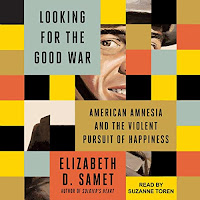
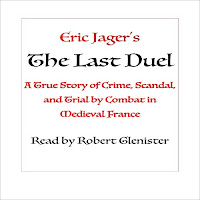









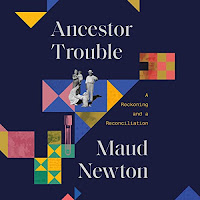


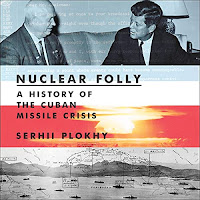








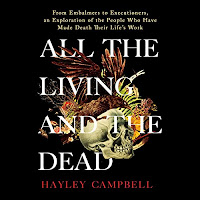










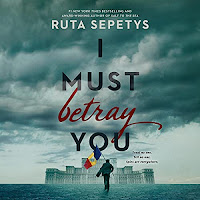







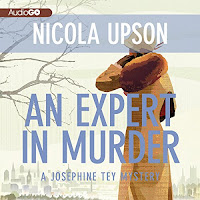
No comments:
Post a Comment